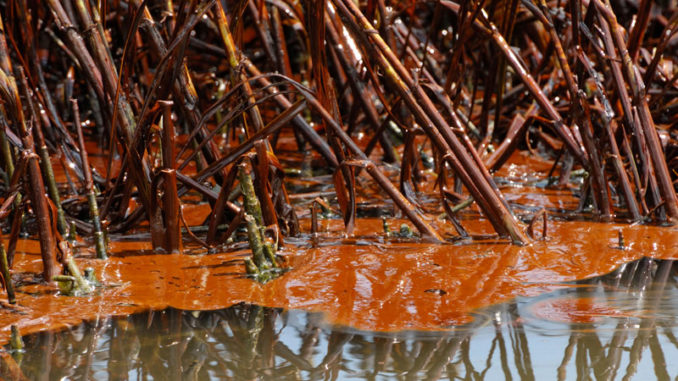
Coastal fish populations didn’t crash after the Deepwater Horizon spill – why not?
Ten years later, researchers have found that the Deepwater Horizon oil spill did not appear to cause significant oiling injury to coastal fish populations.[…]

Ten years later, researchers have found that the Deepwater Horizon oil spill did not appear to cause significant oiling injury to coastal fish populations.[…]
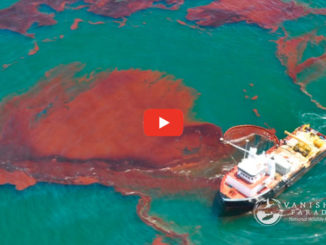
The National Wildlife Federation is working hard to ensure oil spill settlement dollars will have the biggest impact on coastal ecosystems.[…]
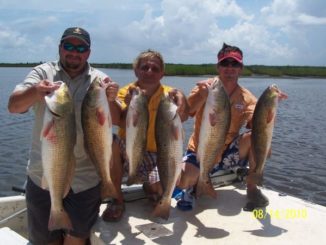
The Louisiana Wildlife and Fisheries Commission rebuffed the agreement the Louisiana Wildlife and Fisheries that allowed federal officials to dictate state recreational fishing closures by reopening all state waters immediately during a special meeting today (Aug. 20).[…]
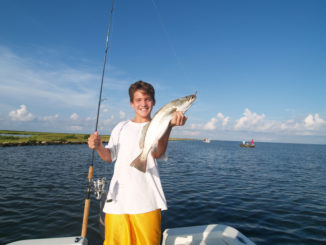
My father had a simple rule when I was growing up: When he gave instructions, he didn’t repeat himself – without some physical reinforcement that made it uncomfortable to sit down.[…]
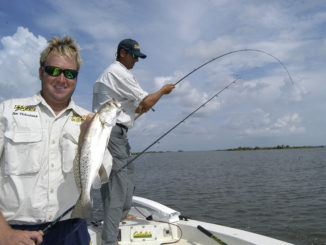
Three weeks after most fishing closures enacted in response to the BP Deepwater Horizon oil spill were overturned by the Louisiana Wildlife and Fisheries Commission, there still are numerous areas closed to recreational anglers – and that didn’t change during today’s (Aug. 5) commission meeting.[…]
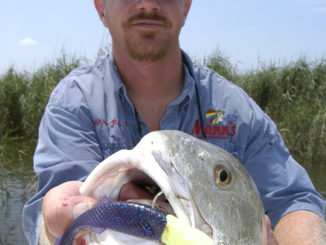
Recreational fishing reopens at the mouth of the Mississippi River today at 6 p.m., the Governor’s Office of Homeland Security and Emergency Preparedness announced.[…]
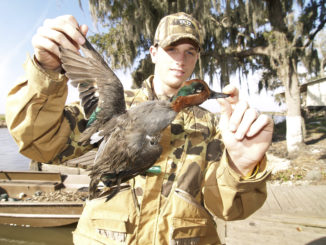
The Louisiana Department of Wildlife and Fisheries will hold six meetings between July 26 and Aug. 3 across the coastal region to address concerns of waterfowl hunters about potental impacts of oil in coastal marshes and the upcoming hunting season.
[…]
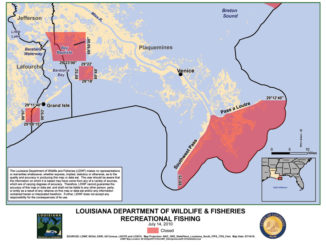
For the past three months, Louisiana’s recreational anglers have had to surf Internet sites and study maps with their GPS units in hand to determine if they could legally fish their favorite areas.
Those days, for the most part, have come to an end.[…]
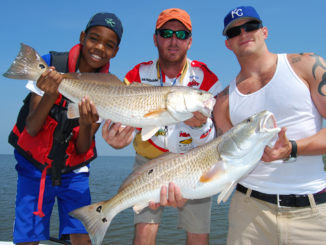
Recreational fishing could reopening tomorrow (July 14) in all areas affected by the BP oil spill, with the Louisiana Wildlife and Fisheries Commission meeting at 4 p.m. to discuss the matter.[…]
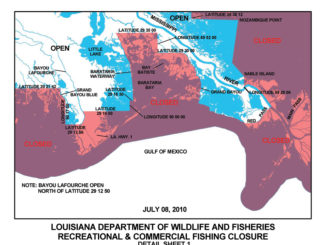
A portion of the Plaquemines Parish waters closed to fishing on Monday were reopened last night (July 7) by the Louisiana Department of Wildlife and Fisheries.[…]
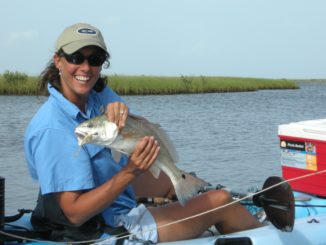
In a rare display of independence, the Louisiana Wildlife and Fisheries Commission today (July 8) refused to go along with recommendations of the agency it is charged with governing and overturned catch-and-release fishing only two days after being enacted.[…]
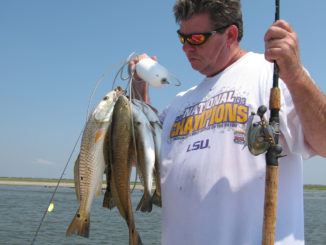
After more than 60 days of fishing closures under the guise of protecting public safety, the state’s top fishery biologist admitted hydrocarbons can’t even pose a danger to anglers and their families.[…]
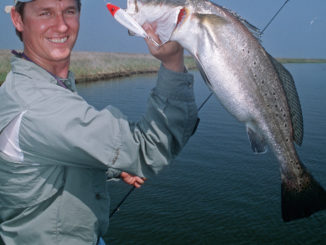
Internet forums have become the modern-day town square, providing easy outlets through which to express opinions.[…]
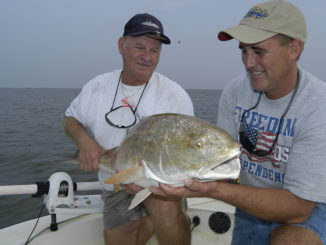
Only five days after saying that catch-and-release fishing in oiled waters would be an “enforcement nightmare,” Louisiana Department of Wildlife and Fisheries chief Robert Barham announced that anglers can now fish closed areas as long as all fish caught are immediately released.[…]
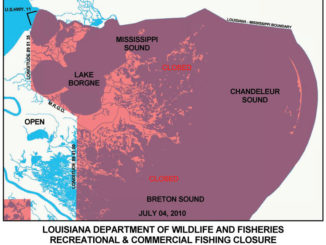
Fishing closures on the east side of the Mississippi River were expanded dramatically this morning (July 5) by the Louisiana Department of Wildlife and Fisheries, which shut down all fishing in Lake Borgne, the extreme eastern portion of Lake Pontchartrain, Hopedale, the eastern portion of Delacroix, and some Pointe a la Hache waters in response to the BP Deepwater Horizon oil spill.[…]
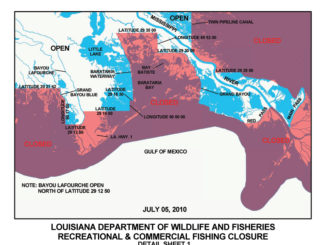
After shutting down fishing in a huge swath of the marshes east of the Mississippi River, Louisiana Department of Wildlife and Fisheries officials announced a second closure just after 5:30 p.m. today (July 5) that stopped angling north of Main Pass near Venice eastward to Pointe a la Hache.[…]